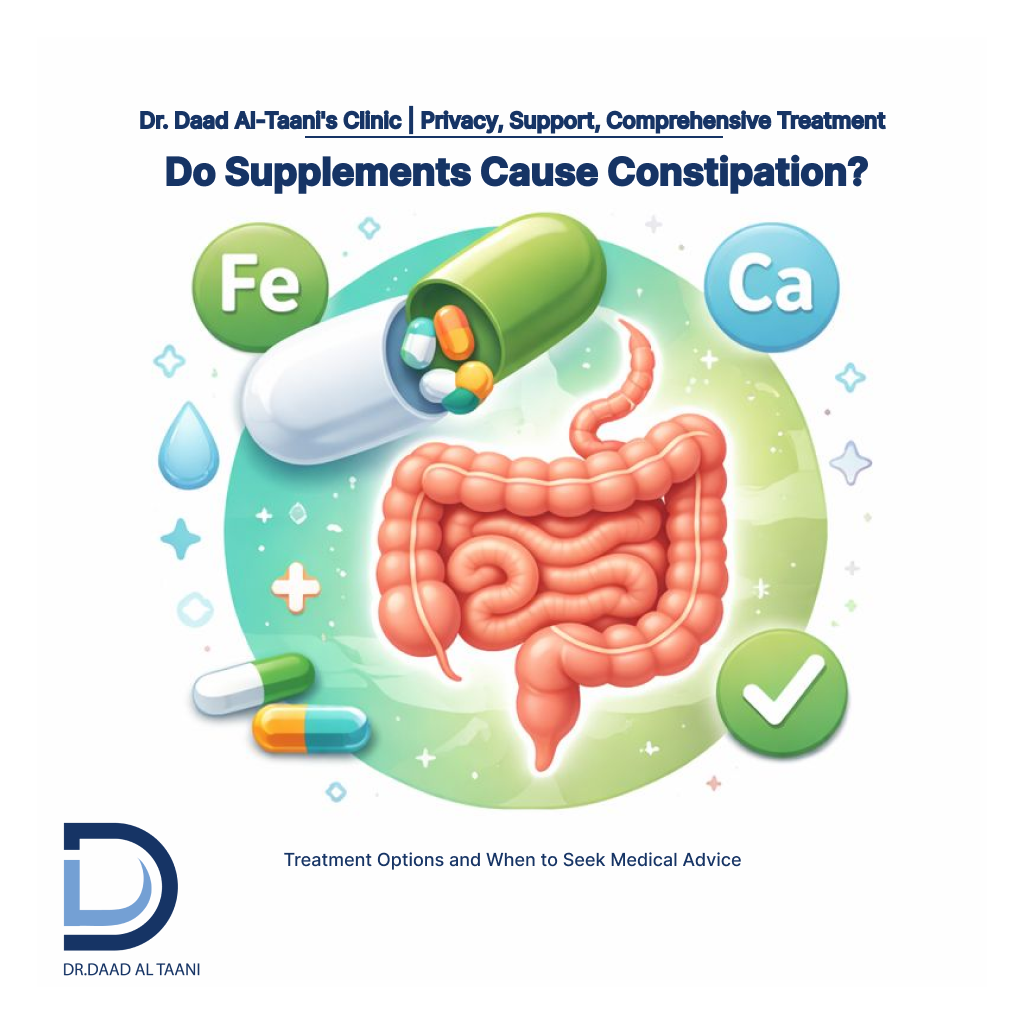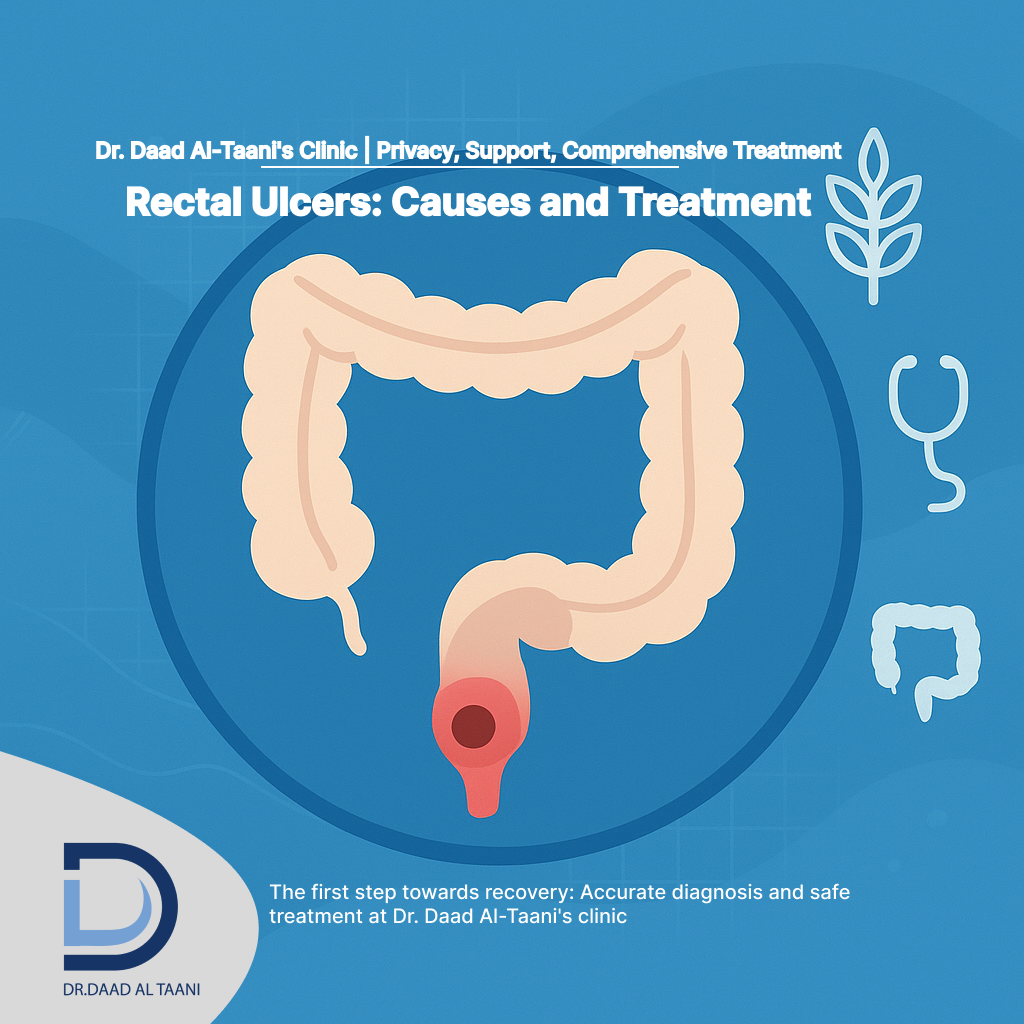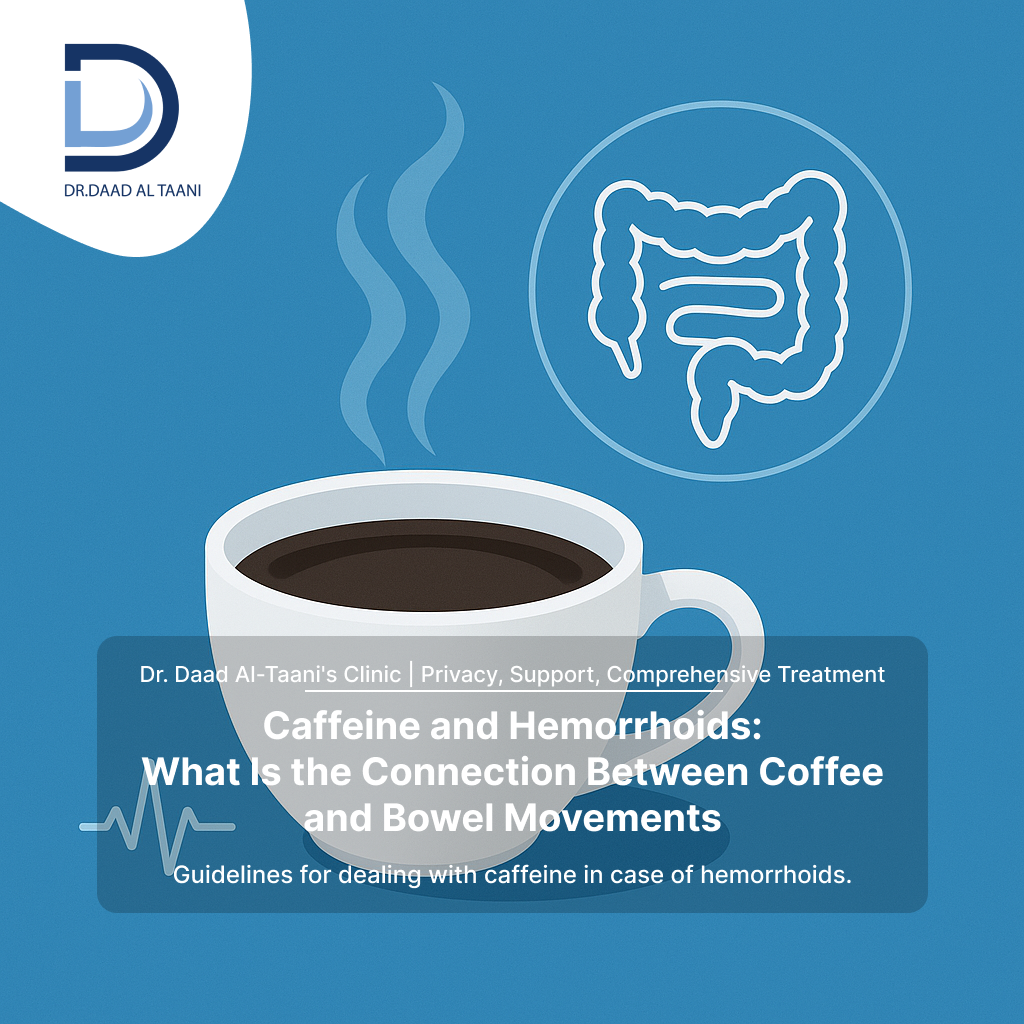A Simple Introduction to the Genetic Causes and Common Symptoms of Hemorrhoids
Can hemorrhoids be inherited? Many people link their condition to a family history of the disease. In this article, we explore the connection between genetics and hemorrhoids. We also explain the common symptoms, provide detailed causes, and offer tips for prevention and treatment.
Hemorrhoids are swollen veins located in the rectum or around the anus. Patients may feel pain or anal itching and might notice bleeding after bowel movements. In some cases, hemorrhoids appear as painful external lumps or swelling. Symptoms vary depending on the type (internal or external) and severity of the condition.
Dr. Daad Al-Taani, a specialist in hemorrhoid treatment in Dubai, explains that genetic factors may weaken the tissues of the rectum and anus, increasing the likelihood of developing hemorrhoids. When a parent or close relative has a history of hemorrhoids, the risk is higher—especially if combined with other factors such as constipation or physical inactivity.
However, genetics are not the only cause. Chronic constipation, a low-fiber diet, prolonged sitting, pregnancy, obesity, and straining during bowel movements are among the most significant contributing factors.
Can Hemorrhoids Be Prevented? How Does Lifestyle Play a Role?
The risk of hemorrhoids can be reduced by adopting a healthy lifestyle. Eat fiber-rich foods, drink plenty of water, exercise regularly, and avoid sitting for long periods—especially in the bathroom.
Early treatment is recommended when symptoms appear. Mild cases respond well to topical treatments and stool softeners. More advanced cases may require medical procedures such as rubber band ligation or coagulation therapy. In cases with complications, surgery may be necessary.
To learn more about the causes and treatments of hemorrhoids, follow Dr. Daad Al-Taani’s YouTube channel. The channel offers reliable medical content in Arabic, explaining anorectal conditions in a clear and helpful way.








